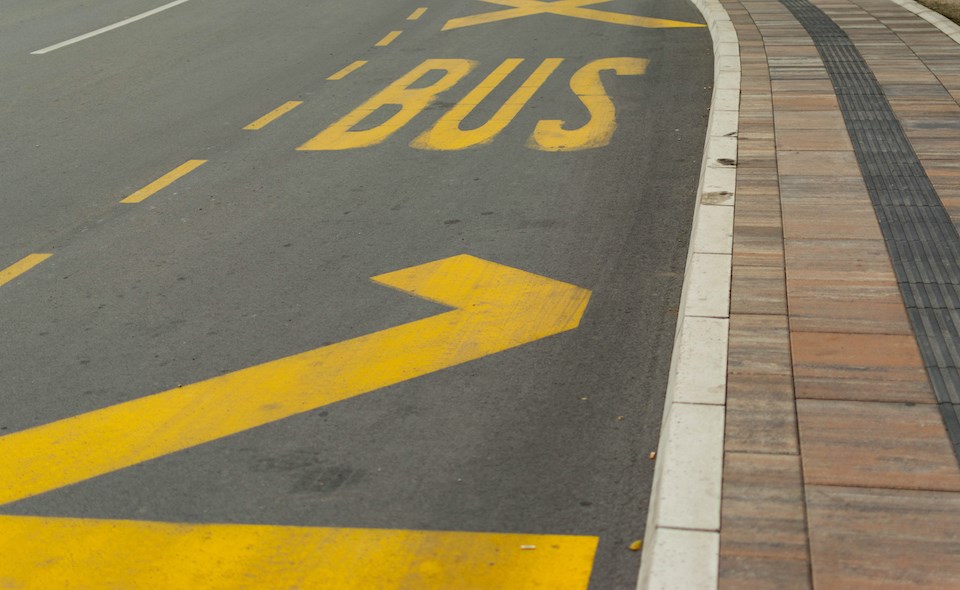Vancouver will move forward with plans to implement dedicated bus lanes on key corridors in the city.
Vancouver City Council unanimously passed a motion on Wednesday, July 24 to add dedicated bus lanes on eight priority corridors over the next several years, intending to have at least two corridors per year beginning in 2025 (see slide two).
Nine city councillors attended the vote, with Mayor Ken Sim and Coun. Montague absent.
OneCity Coun. Christine Boyle tabled the motion and told V.I.A. in a that implementing the lanes would allow people to move more quickly on existing streets and would cut TransLink losses on bus delays.
According to the motion, transit delays may also disproportionately impact marginalized communities. Immigrants, visible minorities, and low-income earners rely on public transportation more often. South Vancouver, the neighbourhood highlighted by Boyle, is one of the most diverse parts of the region and is heavily reliant on transit.
The corridors highlighted in the motion include:
- Southeast Marine Drive
- 49th Avenue
- Hastings Street
- Main Street/Kingsway
- Broadway
- King Edward Avenue
- West 4th Avenue
- Downtown to the Ironworkers Memorial Bridge (Powell, Cordova, and others)
Ridership and overcrowding have increased, leaving commuters stuck in traffic for 28,000 hours every weekday.
Dedicated bus lanes to ease congestion, reduce TransLink deficit
Overcrowding on routes caused TransLink delays costing over $80 million in 2023. Its includes the Vancouver corridors mentioned in the motion and highlights that buses carry 60 per cent of transit users in the Lower Mainland.
TransLink's report to the Mayor’s Council on Regional Transportation Thursday features decidedly bleak scenarios, including up to a 50 per cent cut in bus service, 145 of 230 transit routes cancelled, a 30 per cent reduction in Skytrain service, nearly 675,000 people losing access to transit service within walking distance, and congestion worsening by 20 per cent.
TransLink told V.I.A. that implementing the bus lanes will ease overcrowding by reducing bus delays and "savings in operational costs achieved from such measures can be reinvested elsewhere in the system."
"Measures such as bus lanes reduce travel time, increase reliability, and improve the efficiency of our transit system, helping more people get to where they need to go," it said.



